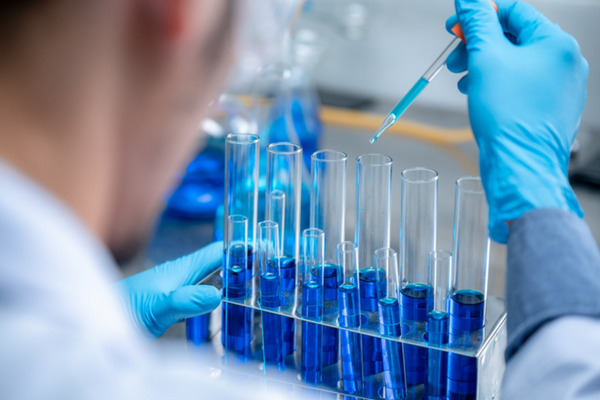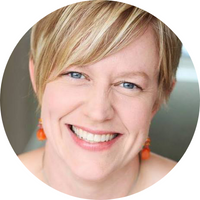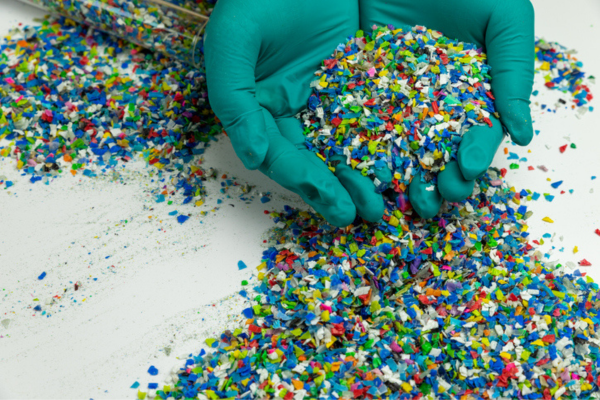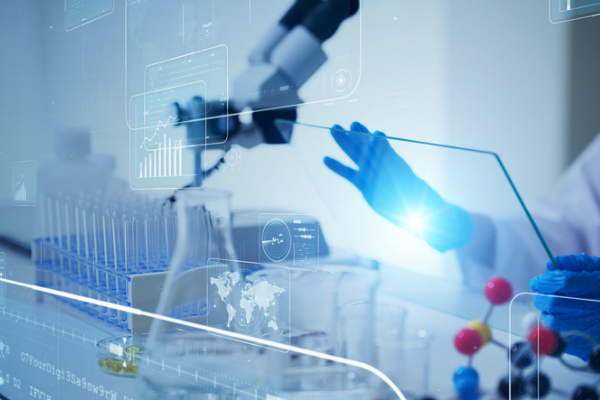
Key Takeaways:
- Challenges and priorities for the biotech industry
- The difference between innovation and invention
- The personality traits Amy credits for her success and more
What’s been the biggest challenge in your CEO role at Lucy Therapeutics?
Managing expectations of all the stakeholders. Before I was in this role, it was my experience that many small, privately owned companies ignore the inconvenient truth that essential company functions – financial, organizational, scientific, business – often have competing (or sometimes conflicting) goals or processes.
Frankly, the behavior modeled by many biotech CEOs continues to represent a command and control management style – decisive decisions dispensed without acknowledgement of the complexity involved, or a thinly-veiled arrogance often unconsciously employed to hide what one doesn’t know. That admitting vulnerability or asking for help makes one less desirable as a CEO is a damaging concept still running rampant in our ecosystem today.
I have found that transparency around topics traditionally shrouded in secrecy (salary and bonus structures, business / deal making decisions, internal vs. external-facing messaging) leads to greater trust and teamwork. It is sometimes argued that not everyone will appreciate the greater transparency once people learn “how the sausage is made.” But I have found most are grateful for this knowledge: it empowers them with information to challenge the often-unbalanced status quo in our industry.
Walk us through the decision-making process that led Lucy Therapeutics to focus on finding a cure for Rett syndrome. There are many diseases that lack treatments. Why that one?
It was really two-fold. First of all, I became aware of Rett Syndrome early in my career, and it left an impression on me that a rare disease just as prevalent and devastating as Duchenne Muscular Dystrophy (DMD) was receiving less attention and support. The incidence of DMD has recently been estimated1 at 1.98 in 10,000 live male births, while the incidence of Rett Syndrome is similar at 1 in 10,000 live female births – yet a search in www.clinicaltrials.gov reveals 222 interventional studies in DMD vs. 38 in Rett Syndrome.
Despite a single gene origin for 95% of Rett patients, official diagnosis of Rett Syndrome is still based on clinical presentation and ~5% of patients diagnosed do not contain the MeCP2 mutation. Multiple mitochondrial abnormalities are found in patients and much of their symptomology is expressed in organs known to be highly reliant on mitochondrial function (brain, heart, muscle).
This leads to the second point I wanted to make – the more Lucy Therapeutics looked into the pathology downstream of the initial MeCP2 mutation event, the more we realized that increased metabolic dysfunction in the mitochondria could explain a wide variety of the symptoms – moreover, it is becoming clearer in Rett’s, as well as other diseases, that genotype alone does not lead to a defined phenotype. In fact, independent modulation of epigenetic status (which is largely controlled by mitochondrial bioenergetics) can provide an alternative mechanism to change the course of a given ‘genetic map’ especially where redundant systems may be in play. At LucyTx we are looking to address this mitochondrial dysfunction and develop effective treatments through a broader understanding of perturbations in mitochondrial systems biology.
Has the image in your mind of being a CEO matched the reality?
As a child I wanted to be an astronaut – ironically, that is also a job highly reliant on the expert capabilities of those around you to be successful. Maybe my path to becoming a CEO wasn’t as unexpected as I felt it was.
I see the job of a CEO to be the first to take the blame and the last to accept the rewards. I wish this model saw more real-world application. It is not an easy task: the media, investors and the public want splashy headlines. We crave simple solutions and strong leaders with singular sound-bite visions – memes that are easily capitalized on via social media platforms. Creating a culture and a vision is not accomplished through skillful use of buzzwords. Truly connecting with your employees takes more than that. Humility and honesty resonate with people and bring out their best, and that means as CEO that I have to create a safe space for others to do the same.
What’s the one piece of advice you wish you had received as you started your current role as CEO with Lucy Therapeutics?
Have 4-5 CEOs you respect on speed dial. Being a CEO can be a lonely endeavor – and this is something I did not fully understand before I was in this role. You need to make decisions, and the buck stops with you. That is a heavy burden when people’s livelihoods depend on your ability to make the right choices. Having a support group where you can pressure-test your thoughts is critical.
How have your parents influenced your leadership style?
My parents have very different temperaments. Together, they fostered in me a sense of self-awareness which I think is the single most important trait any leader should try to cultivate in themselves. Leaders who are not self-aware often fall prey to bad behavior, poor decisions and can be influenced by those looking to manipulate them. Leaders who are self-aware face the same challenges, but they don’t come at decisions from a place of unrecognized insecurity, which I find to be one of the most damaging qualities in a leader. They recognize their own weaknesses and challenges in addressing problems and find colleagues or advisors to fill their gaps. They strive to understand how their behavior affects others and don’t expect everyone to adjust to them.
The world’s scientists collaborated in an unprecedented way to quickly develop COVID-19 vaccines. Is there anything that you observed regarding this global collaboration that might help in charting a new approach toward finding cures for diseases like cancer or Alzheimer’s?
I believe that complex age-related diseases like Alzheimer’s need very different approaches than what was used for the COVID-19 vaccine development. The vaccines for COVID-19 were developed knowing that a single agent (SARS-CoV2 virus) caused the disease, and also with the knowledge that vaccines had been successfully developed for other viruses in the past.
In contrast, there is no single etiological agent responsible for Alzheimer’s and no successful drug approved to stop the disease. Therefore, the map that the vaccine developers used for their unprecedented achievements is missing for Alzheimer’s. I would argue we’d be better off talking to researchers having similar problems in other disciplines – like in ecology or climate science. Both of these disciplines deal with the challenge that small network perturbations lead to larger systemic effects over time.
One thought for advancing drug discovery efforts in Alzheimer’s might be to learn more about how ecologists think about trophic cascades (removal or reduction of a single species in an ecosystem). In essence, this is a similar problem as in drug discovery, where you are looking at how modulation of one target or drug affects the entire human biological system with its redundant and complex feedback systems.
How would your life have been different if you had pursued a Chemistry undergraduate degree, rather than Violin Performance?
At the time I was there, Northwestern did not offer a dual degree program – so I had to be in the School of Music to take music classes, but still was able to take chemistry major classes in the College of Arts and Sciences. I think my musical training was critical for my ability to cross-pollinate the many different scientific disciplines I have learned in my career. Professional violin training teaches that an incredibly complicated number of aspects need to come together to produce a successful performance – playing the correct notes, dynamics and articulation, monitoring bow speed and pressure, listening to fellow musicians for sudden changes in phrasing, balancing looking up at the conductor and down at your music, etc.
I can’t think of better training for a scientist in drug discovery than to perform music at a professional level. To best understand how drugs work in people, one should arguably understand how they perturb the whole human system: this means being fluent in the languages of chemistry and biology, pharmacology and metabolism, bioenergetics and genetics.
Focusing too narrowly on one or the other of these is like trying to play the violin without paying attention to articulation or dynamics. Just as the best musicians flow effortlessly back and forth between multiple artistic and technical aspects of their instrument, I believe the best drug discoverers should do the same.
What are some personality traits that have been most instrumental in your career success? Which trait do you wish you had in greater supply?
I think the movie ‘Galaxy Quest’ got it right: ‘Never give up. Never surrender!’ Persistence and adaptation are critical for growth, whether in one’s personal or professional life. Self-deprecation goes a long way to smoothing over rough edges. Positivity and having fun matter; life is short and, as much as possible, we should make it enjoyable not just for ourselves but for others. I think it’s also important to acknowledge frustration and failures and develop healthy coping strategies. For me, a very bad day usually ends up with a pickup from a local restaurant of an over-indulgent amount of sushi and crab rangoon. By the next day, I can usually focus again on the problems at hand. It’s important to be kind to yourself and realize very little in life is as consequential as it seems at the time.
You have been affiliated with the ACS Medicinal Division (MEDI) for a long time. What impact has MEDI had on your career?
MEDI has provided me with invaluable friendships, mentors, opportunities and comradery. The Executive and Long-Range Planning committees are filled with well-known medicinal chemists who don’t take themselves too seriously. This allows the group to be incredibly productive as there is a natural ebb and flow between ideas; these productive discussions have led to new thoughts and positive initiatives. I have rarely seen groups get more done and have as much fun doing it as the MEDI committees.
What technology trends are you following most closely, with an eye toward how they may impact the work of your scientists, and your company’s growth?
Many new technologies suffer from the innovation / invention dilemma. An innovation which solves an existing problem does not necessarily require a new invention or technology. Likewise, an invention is simply a new technology, but the ultimate utility of it in future innovations is unknown. The initial hype surrounding new technologies often drives massive financial investments and media attention which fades quickly and quietly into the reality of limited applicability for complex real-world problems.
This is a lesson we continue to learn over and over: from the halcyon days of high-throughput screening and molecular modeling to the many “-omics” revolutions, big data, AI algorithms and gene therapy, these are all simply tools. Powerful tools, but useful only when applied to the right problem.
Anyone who has ever tried hammering in a screw quickly realizes that this is not the right tool for the job. Arguably, many of the most profound innovations in science have come from putting existing technologies from unrelated fields to work in novel combinations (e.g. the steam engine or the iPhone). Yet, every time there is a new technology introduced, it is heralded as the tool which will finally unlock the secrets of disease X or Y and provide the breakthrough drugs we have been waiting for. I don’t know about you, but I’m still waiting.
What have you learned about yourself since the start of the pandemic?
How little I miss the 90-minute commute to Cambridge. The pandemic showed me that while in-person facetime is important, a lot of critical work can be done just as efficiently remotely. And I think it’s important to recognize that work doesn’t have to be an all-or-nothing affair between on-site and satellite locations. I also realized it’s important to set work-life boundaries differently, as my home became my office.
To thank you for being an ACS Boss Talk contributor, ACS will treat you and ONE guest to dinner. You can choose Antonio Stradivari, Elon Musk, Marie Curie, or Itzhak Perlman. Who will you dine with, and what would you talk about?
As luck would have it, I’ve already met Itzhak Perlman: he is a lovely, insightful man! Given the opportunity, I would enjoy being able to listen to Marie Curie. I would endeavor to do as little talking as possible and let her tell me about her life. I’m sure there would be much more to find out than what is in the history books.
[1] Orphanet Journal of Rare Diseases volume 15, Article number: 141 (2020)

Amy Ripka is CEO of Lucy Therapeutics, a Boston-based, mitochondrial platform biotech, revolutionizing treatments for rare and neurological diseases. Previous to her role at LucyTx, she served on the executive leadership teams at SAI Life Sciences and WuXiAppTec. Dr. Ripka previously held positions of scientific leadership at EnVivo Pharmaceuticals, Daiamed and Infinity Pharmaceuticals as well as consulting for other Boston biotechs such as FoldRx (acquired by Pfizer) and Hydra Biosciences.
She received her PhD in Organic Chemistry from the University of Wisconsin-Madison and subsequently worked in the lab of Nobel Laureate K. Barry Sharpless for her post-doctoral studies. She has over 30 issued patents and has been involved in multiple INDs in different therapeutic areas. She has deep connections in the medicinal chemistry community with long-time service to the ACS MEDI Executive Committee and was the elected Chair of the 2012 Medicinal Chemistry Gordon Research Conference. She is currently a SAB member at Carraway Therapeutics and Q BioMed. In her spare time, she plays classical violin professionally in and around the Boston area and has performed with such artists as Yo-Yo Ma, Hillary Hahn, Peter Gabriel, Sarah McLachlan and Smokey Robinson.
This article has been edited for length and clarity. The opinions expressed in this article are the author's own and do not necessarily reflect the view of their employer or the American Chemical Society.
Copyright 2022 American Chemical Society (All Rights Reserved)












